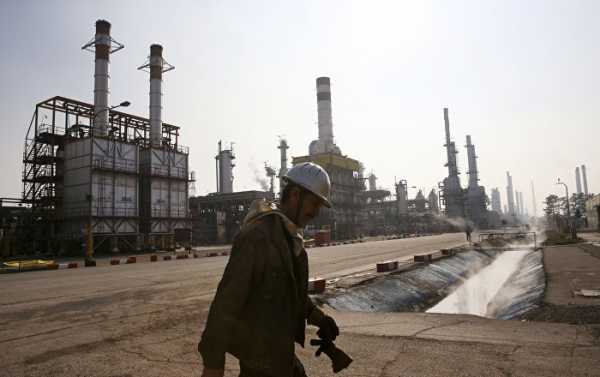
The global energy watchdog issued a warning Friday about the impact of looming US sanctions against Tehran as oil prices rose over 1 percent in Friday trading, coming close to breaking even after a drop in prices earlier in the week.
In its latest Oil Market Report, released Friday, the International Energy Agency said it expects a “far less calm” market picture for oil than the one that exists today.
“When we publish our next report in mid-September, we will be only six weeks away from the US’s deadline for Iran’s customers to cease oil purchases. As oil sanctions against Iran take effect, perhaps in combination with production problems elsewhere, maintaining global supply might be very challenging, and would come at the expense of maintaining an adequate spare capacity cushion,” the report said.
Stressing that “recent cooling down of the market, with short term supply tensions easing, currently lower prices, and lower demand growth might not last,” the Paris-based watchdog noted that “the market outlook could be far less calm” a month from now “than it is today.”
Energy analysts believe Iranian crude oil exports may fall by between 500,000 to 1.3 million barrels per day, down from recent highs of 2.7 million bpd in May, amid Western countries’ preparations for Washington’s oil sanctions to step into effect in November.
Beijing has indicated that it will not halt its imports of Iranian oil, although other countries, including US allies Japan and South Korea, have scaled back their purchases, with some European energy firms doing the same.
Earlier this week, the foreign ministers of several European powers and European Union foreign policy chief Federica Mogherini issued a joint statement condemning US sanctions and expressing their commitment to the 2015 Joint Comprehensive Plan of Action (JCPOA), also known as the Iran nuclear deal. Brussels plans to implement a statute to retain access to the Iranian oil market amid fears that disruptions might push oil prices up to $90 a barrel or above.
Washington withdrew from the JCPOA in May and has scheduled the reintroduction of several rounds of sanctions against Tehran, including restrictions targeting its crude oil exports, which the State Department has threatened to bring down “to zero.”
Amid US threats, Iranian officials have warned that if the US directly threatens Iranian oil exports in any way, Tehran would react by closing the Strait of Hormuz, the Persian Gulf chokepoint through which some 20 percent of the world’s crude oil supplies flow.
Iran’s Islamic Revolutionary Guard Corps held large-scale military drills in the Persian Gulf last week, with US Naval forces in the region saying that they were monitoring the drills closely.
Sourse: sputniknews.com






